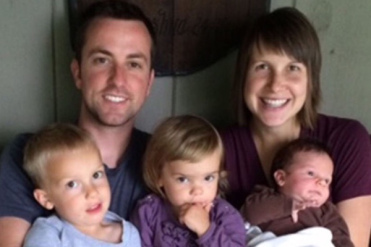Putting the answer before the question

Nearly a month after a Nebraskan family of five was killed in a car accident on their way to a missionary training program, Lyn Jerde, a writer for the Telegraph Herald in Iowa, asked the questions that many Christians are asking:
What kind of God would call people to a holy endeavor, then allow them to be wiped out when they answer the call?
If anyone tries to tell me that God “took them home” — including three tiny little children — because “God needed more angels in Heaven,” don’t be surprised if I respond with violence or at least violent words.
Expect a similar reaction to “everything happens for a reason.”
But say, “It’s a mystery,” and I’ll probably respond with, “Amen.”
I agree with her on the mystery part. After years of deep thinking and praying on the subject, I’m inclined to think that tragedies like these aren’t divinely ordained at all, but rather a consequence of the old motto “Shit happens,” and they are just as likely to happen to Christians as they are non-Christians.
I appreciate Jerde’s questions, as they are not popular and not often addressed in church. After her post was shared on Friendly Atheist, the comment thread is being taken over by pointed inquiries about Jerde’s concluding statement: “I will continue believing that God is good.”
On the one hand, as a person of faith myself, I find that a noble endeavor. On the other hand, these response questions are perfectly valid:
How can you claim to honestly wrestle with those questions if you have already decided on a conclusion before even asking?
I appreciate all the introspection, Lyn, but your conclusion was the ultimate non-sequiter. Despite it all, you continue to believe in a good God? Why?
If you are absolutely certain that your religion is the true one, this ceases to be an issue. You know that you are working with a limited amount of knowledge based on what you’re able to see of the stage from peeking through the curtain; you don’t have the full range of view and context that the audience has, and your doubts will be addressed soon enough.
Then again, there is something highly coincidental about claiming your religion as “true” when it happens to be the one you were born into…and the most socially acceptable religion in your country of origin. And if you’ve never taken the time to research and eliminate other religions based on reliable evidence.
Therefore I don’t agree or disagree with the responses to Jerde’s piece, and turn the question back to my readers: is starting with a conclusion before even asking the question an intellectually honest thing to do? Why or why not?
See also: “God will never forsake you”
The limits of divine intervention
Filed under: Social Issues, Theology Tagged: Christian culture, Christianity, evangelicals, grief











